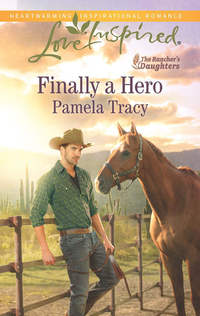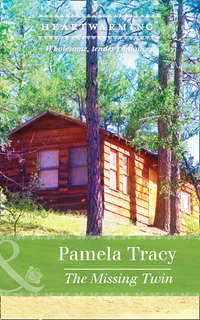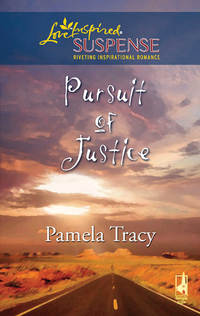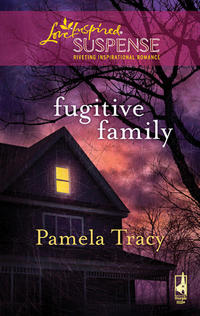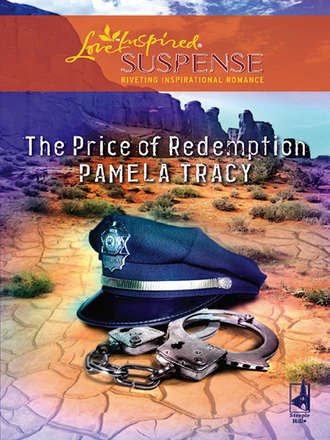
Полная версия
The Price of Redemption
“Ma’am?” the deputy said.
Ruth gripped a porch rail, but the cop wasn’t talking to her. He was addressing Rosa.
“Yes.”
“Sheriff wants you to come to the shed. He thinks you can help with the other body.”
Rosa’s eyebrows drew together. One hand dropped to her stomach. “Me? Are you sure he meant me?”
“I’m sure.”
“Honey—” Sam’s teeth were clinched “—don’t worry, there’s no way they can tie you to this crime.”
Rosa blanched. One hand dropped to her stomach. “Sam, we overhead some of what the sheriff said. What’s going on?”
“Yes, Sam, what’s going on?” Ruth looked from the deputy to Sam to Rosa and took a step back.
FIVE
It was the preliminary identification of the pink-clad woman as Lucille Damaris Straus that ended any hope Eric had of settling in quietly at Broken Bones. The same identification moved Rosa to first place on the list of suspects. The sheriff made the necessary phone calls and government intervention arrived in the form of state agencies and the FBI.
Rosa and Sam were hustled off to who knows where. Eric, Ricky, the minister and Ruth were ordered to stay in the cabin. At first, they’d all headed for the porch, curiosity so tangible it almost pushed them. After a few stern looks, they retreated inside. Then, carefully, Eric headed for the porch and a rocker. Ruth followed, taking the second rocker.
For Eric, sitting still and simply observing was not a hardship. He’d spent a lifetime learning how to be seen and not heard. It had saved his hide more than once both growing up in the Santellis family and later while surviving in prison. If what he was observing now was true, Ruth didn’t know how to sit still. White-knuckled hands clutched the armrests of the rocking chair. Impatient feet tapped a beat that threatened to dance off the porch. Tenaciously balanced on the edge of the seat, she was poised for flight but shackled by her belief in the system.
A belief he didn’t share. “You do know that Rosa couldn’t possibly be involved in this?”
She looked at him, blinked and finally settled into the chair. “I—I—I don’t know what to think. I’ll wait—”
“Did you ever meet Lucy?”
She stared at him, as if surprised everyday conversation was possible. Her feet slowed their dance and her knuckles relaxed. “No, I think Rosa had already gotten her off the street by the time I joined the force. And, if I ran across her before that, I’d not have thought twice.”
Gila City and Broken Bones had their quota of the homeless, thanks to the lack of winter. Eric knew Ruth to be an Arizona native, which meant acclimated to the sight of men and women pushing shopping carts loaded with an odd assortment of belongings. “If I remember correctly,” Eric said, “she was mentally ill.”
Ruth nodded, but didn’t respond.
“I wonder how she wound up in my shed. Rosa said something about Lucy having a rough childhood….”
A man wearing a suit much too dignified for the middle of a desert crime scene walked toward the porch and called, “Mrs. Atkins. We’d like to show you something.”
And she was gone, before Eric could convince her of Rosa’s innocence, of his innocence.
Funny, she was the only doubter he wanted to convince.
He certainly felt no need to convince the barrage of officials who crowded into his living room. The minister was escorted home. Who knew where Ricky, the reporter, disappeared to? And the officials, convinced Eric not only knew how the bodies came to be in his shed but also who put them there, let him know that his contributions, or lack thereof, only angered them.
It didn’t matter to them that Eric hadn’t been to the cabin in a decade. It didn’t matter to them that he had alibis. And, it didn’t matter to them that other than serving time and later being exonerated, he had no criminal record.
All he could do was tell them the history of his family’s cabin. His great-great-great-grandfather had built the cabin in the 1800s. His grandfather had left it to Eric. His sister and her husband had lived in it a decade ago. Yes, Rosa knew about the cabin. Yes, Rosa had been his sister’s childhood friend. She’d been his teenage crush. His oldest brother was responsible for her brother’s death. He’d hooked up with her during an undercover sting operation four years ago. They both worked on the side of good. Ten months ago, she, her husband, Ruth and a man named Mitch Williams proved Eric innocent of murder of the police officer he’d been working with. That’s when he heard about Lucy Straus. He’d never met the woman. His story never changed. It couldn’t. It was the truth.
A truth that didn’t make the authorities any happier. They wanted to solve this case. It would be so much easier if they could tighten the noose around a Santellis neck.
They were willing to work all night to tie the knot. Eric’s last thought, as he stretched out on the couch in his living room, his bed for now, was about how the local authorities were making it perfectly clear they’d settle for Rosa’s neck instead of his.
The alarm rang at six. Eric didn’t remember setting it, and for a moment, he contemplated getting a few more minutes shut-eye. That’s when he heard the voices outside and the memory of yesterday’s mess catapulted him off the couch and back to his front porch.
The door to the shed was open. Eric started toward it. The sheriff, looking as though he hadn’t been to bed at all, stepped out and shook his head. Eric interpreted the look: I ask questions; I seldom answer them, and I don’t know how to share.
After downing a bowl of cereal and brushing crumbs off the low-slung jeans he’d slept in, Eric decided to act as if this Saturday morning was like any other. He’d start checking for exterior and interior damage, start doing with the cabin what he’d be doing if the authorities weren’t here. It’s not as if they were including him in the investigation. Plus, maybe if he blended into the scenery, didn’t appear so much an observer, they’d forget he was here, talk a bit more freely, and then he could figure out what they were doing with Rosa.
Before he could begin, James Winters’s white Cadillac pulled up and the elderly doctor stepped out. Wisely, he avoided the shed and came toward Eric instead.
“Curiosity is a poor bedfellow,” he said. “I didn’t sleep all night. Feel like company?”
“Think they’ll let you stay?”
“Sheriff owes me.”
The doctor sat in the second rocker and tossed Eric a newspaper. “Thought you’d find this interesting.”
Eric settled back into his chair and cringed. Friday’s Gila City Gazette’s front-page headline screamed Mafia Hit! The first few paragraphs focused on Lucille Damaris Straus, the pink-clad woman.
Ricky the reporter had gotten it right. Lucy had first come to the nation’s attention last year when the truth about Cliff Handley, a Gila City native and a beloved police officer who lived a double life, was made public. Lucy, a homeless woman, had assisted in his arrest rather unwittingly. She’d loaned, for a price, her identity to Rosa. Using Lucy’s name and social-security number, Rosa made a place for herself in Gila City and hunted down every person, every place, every move from Cliff’s past. Her goal: to prove Eric innocent. She’d ferreted out details about Cliff Handley that not even he realized. Then Rosa had been arrested and her true identity revealed. She was a mere civilian determined to see justice done. But her arrest exposed the truth about both Cliff and Eric.
Cliff was a murderer; Eric was not.
Unfortunately, Lucy hadn’t been around last year for Rosa to ceremoniously return her identification. And even more unfortunate was the general consensus that Rosa, who claimed not to have seen Lucy in all that time, most likely was the last person to see Lucy alive. Add to that the fact that Rosa’s fingerprints were on some of Lucy’s belongings and, for the authorities and press, the consensus easily turned into the questions Did Rosa kill Lucy? And if so, why?
Dustin Atkins got equal coverage. Pictures of his deserted squad car, found just a mile from Eric’s cabin, looked sinister. A family photo of Dustin, Ruth and a little girl looked prime-time perfect. The piece on Dustin began with his dedication to keeping Gila City’s youth off drugs; it ended with Ruth’s new position on the police force and her dedication to not only ridding the streets of killers but also keeping her husband’s case open.
Finally Eric turned the page and was treated to his own history—that of the Santellis crime family. He didn’t need to read a word. They dealt drugs. Most had the word Killer tattooed on their forearms.
In Eric’s opinion, the press needed to spend more time on the verifiable truth. Rosa was a cop, married to a cop and about to have a little cop. Nowadays, everything she did was by the book. Eric was a Santellis trying to start a new life. It didn’t seem to matter to the press that innocents were intruded upon. It didn’t matter to curious locals, either. Like the minivan of retirees who were slowly driving past his cabin. The couples, families and even the occasional single female who slowed down for a look felt like paparazzi. And every hour it got worse. Eric, and everyone else trying to keep the crime site intact, watched as a little-traveled road on Prospector’s Way turned into a traffic jam. Only Doc seemed able to handle the deluge of people. He knew most of them. He returned greetings, asked one driver about the year of his BMW, claimed not to know anything about the bodies, yet, and advised the drivers to leave the policing to the police and go home.
A few brave souls yelled for Eric to sign their newspaper, which pretty much acted like a road map to the stars. Eric’s home was becoming one of Arizona’s seven wonders, a landmark destination ranked right up there with the Grand Canyon.
Sheriff Mallery growled every time the curious slowed down for a stare. Of course, Mallery had more than a passing interest in the traffic. His family owned the land adjacent to Eric’s and had for as long as the Santellises had owned theirs. No doubt, until now, most of the town was unaware of the pitiful condition of the sheriff’s younger brother’s cabin. Old cars, trash, broken-down campers, you name it, littered the Mallery land. It looked much like the Santellis property—only now Eric intended to change that, clean up his land, make it livable.
After the first hour and with no slowdown of the deluge of cars, Mallery sent a deputy to ascertain the names of those who “belonged” on Prospector’s Way. There were five cabins, two ranches and one permanent gold camp with a population of just over a hundred. It wouldn’t be easy, but it was necessary to identify locals. That same deputy was now busy setting up road barriers. By late afternoon the traffic should return to normal.
Normal?
Nothing was normal for a Santellis.
Or maybe what Eric was witnessing now was normal for his family. In the last hour, he’d heard that Rosa’s lawyer wanted her to have nothing to do with him; he’d heard that Dustin Atkins had been positively identified; and he’d heard that the only good Santellis was a dead Santellis.
He doubted the sheriff cared that he’d been overheard.
SIX
“I’m so sorry about your loss.” It was the same woman who, in a grating voice, had tallied the death toll at Jose’s funeral. It made sense she’d attend Dustin’s funeral, too.
Some cop Ruth was. If a sketch artist were to ask what the speaker looked like, Ruth wouldn’t be able to assist. Her blinding tears made it impossible to do anything but nod.
“Technically,” the woman continued, “Dustin Atkins cannot be considered as the seventh to die in the line of duty but the third. He died well before Jose.”
Died? It still sounded like a foreign word. Ruth had spent two years carefully saying missing. Now, thanks to dental records, Dustin had been positively identified on Saturday, and Ruth officially became a widow. They released his body on Monday. And here it was Thursday, just one week after Jose’s service, and the Gila City police were once again saying goodbye to one of their own.
“Thank you for coming,” Ruth said. She’d said the same thing to at least a hundred people.
“I wouldn’t miss it,” the woman said. “But I just can’t believe the gall of some people.” She looked at the back row of the church where Sam and Rosa sat. Without missing a beat, she continued, “That woman is bad news. How she became a police officer, I’ll never know.”
Ruth almost said Two months at the police academy in Phoenix learning how to fight, shoot and handle dead bodies, that’s how. Same as me. But the woman didn’t need to hear the words, wouldn’t have heard them if Ruth had uttered them. No, the busybody prattled on, fascinated with her own theories, theories that were being bandied about by almost all the people who knew Rosa had been taken in for questioning.
Did Rosa kill Lucille Straus? And, if so, why?
What did the authorities know that they were keeping back even from her? Surely there had to be something more than fingerprints.
Guilt and suspicion wrapped their hands around Ruth’s already broken heart. Rosa was her best friend, so much so that Ruth had planned to throw Rosa a baby shower in just a few months.
Who knew what would happen in the next few weeks? The suspicion and guilt didn’t feel natural. It didn’t feel right. Yet, the events of that morning replayed at the most inopportune times—like at funerals.
Ruth blinked away the tears. She had to regain control of herself. She couldn’t lose it, couldn’t keep reliving the day she’d been forced to accept his death.
Looking around the church, she found Megan right where she’d left her, sitting next to Grandma and Uncle Billy. Tears slid down the five-year-old’s cheeks. Truthfully, Megan didn’t remember the man Ruth referred to as Daddy. What Megan understood was that most of her friends had daddies and that daddies must be a wonderful thing.
Last night, Ruth sat Megan down and delicately explained that Rosa might somehow be in trouble.
Megan said, “Nope, not Miss Rosie.”
Megan’s allegiance to Rosa brought Rosa’s fan club to three: Eric, Sam and Megan. No one else wholeheartedly bought into Rosa’s innocence. The police were calling Rosa a person of interest. They found her so interesting she was put on leave until their investigation either found her innocent or found her even more interesting.
Ruth didn’t know what to believe. She only knew that if Sam had been married to anyone else, he’d be sitting with her, on the other side of Megan and Uncle Billy, offering comfort, and being a best friend to Dustin one last time. Instead, Sam sat in the very last pew, next to Rosa, who looked ready to cry. Sam looked ready to hit something.
The police liaison started guiding the rest of the stragglers into the auditorium. Too bad he hadn’t started ten minutes before the woman with the grating voice got hold of Ruth. Now Ruth had a headache along with heartache.
Entering the auditorium, she slipped into the pew and stared at the closed casket. Three pictures of Dustin sat on top of the American flag. One was of him, his parents and his brother Billy. Another, just of him, showed a cop proud of his uniform. The final portrait, of the family, showed Dustin with an arm around each of his girls: Ruth and Megan. Next to an elaborate array of flowers, a slide show played on a television set: Dustin during childhood and his teenage years, with parents who had gone ahead of him. Dustin going through the police academy, getting married, becoming a dad. The television faded to black and Steve Dawson led the prayer starting the memorial.
As the minister cited Romans and called Dustin one of God’s servants, Ruth removed two wrinkled pages of notes from her purse. Last night, she’d written her last tribute to her husband. Once the minister finished his talk, Dustin’s peers took their place behind the podium. One after another, five, ten, and even more, they spoke about Dustin’s bravery, his even temper, his dedication to the force, his family, God. How much they missed him.
Ruth’s throat closed—no way would she be able to go up front and stumble through her notes. The dam broke and tears spilled over.
Cops don’t cry.
That’s what she’d told herself at Jose’s funeral. And she’d believed it. But today she wasn’t a cop. No, today she was a widow, a single mother and feeling so alone.
Cops do cry.
She felt the arm go around her shoulder and leaned into its comfort. Sam Packard had taken his rightful place beside his best friend’s widow.
“Two years,” Ruth whispered.
“What?”
“I figured it out and wrote it down.” She handed him the notes. “From childhood, the only time you and Dustin separated were those two years you served in the military.”
Sam nodded and glanced over her words. “He had seniority over me in the police force because of those two years. He sure loved to remind me of that.”
“Yup. He did.”
“He stayed in Gila City because of you.”
“Yup.” Ruth always held that knowledge close to her heart. Dustin loved her and chose not to follow the military career he and Sam had planned during high school. Sam had been his best friend; Ruth had been his best girl, until Megan’s birth had given him the privilege of having two best girls. “Oh, Sam,” she whispered, “say it isn’t so.”
“I wish I could.” He sounded choked up.
“How will I live without him?”
“The way you’ve been living without him for the last three years. You’ll hold his memory close, and you’ll know you’re surrounded by good friends. You also know that God is with you. He won’t leave you.”
Sam had said much the same thing during the early days of Dustin’s disappearance, and Ruth had shaken her head. Dustin had been faithful to God, and back then, to Ruth’s mind, God hadn’t been faithful to Dustin. She didn’t shake her head today. Not with a church full of people who one after the other got behind the podium. Every single police officer and church friend mentioned Dustin’s faith. Every single one, even those who didn’t share his faith.
Sam left her side and walked to the front. Those who’d been whispering fell silent. Ruth bowed her head, and every word Sam uttered, she repeated. He managed to add almost every point she’d made in her notes and attributed them to her. He also mentioned how she was coming to know the God who meant so much to Dustin.
After the service, Jose’s whole family surged forward to hug Ruth, pat Megan on the head and invite them to dinner. “You’ll come to our house soon, for dinner,” Gracia Santos said, “and bring your family.”
“I don’t know. Maybe if…”
“No maybes. We’re widows together. You’re not alone. We have God, and we have each other.” Gracia’s children, only a step behind their mother nodded. “That includes you, too, Sam Packard,” Gracia said loudly. Sam had been gathering the pallbearers to the side, readying them for the drive to the cemetery. “You hear?” Gracia asserted.
“I hear,” he acknowledged.
“And bring your wife.” With that, Gracia looked at Ruth as if daring her to squabble.
Ruth nodded in what she hoped looked like noncommitment. She was outnumbered, no doubt. Jose’s big happy family had always fascinated her. She’d been an only child born to a man who didn’t deserve children. Dustin had been the second son born to two people who thought he hung the moon, and Ruth had always been grateful his parents hadn’t had to deal with his disappearance. They died right after Megan was born.
Carolyn George, Ruth’s mother, leaned against a wall with her eyes closed. This funeral made the second time Ruth was aware of that her mom had stepped foot inside a place of worship. The first had been Ruth’s wedding.
“We’re so sorry.” The words jarred Ruth, returning her to the present. Mourners still waited to offer her emotional support. Phone numbers were pressed in Ruth’s hand. Women hugged, and men shuffled to the unheard beat of “I don’t know what to do or say.” Interspersed between the church people were Dustin’s police buddies and their families. Emotional support was not the goal, though. She heard, instead, “If anybody bothers you…If you just need drive-bys…If…If…If…”
When the line slowed down, Ruth sidled over. “Mom, are you all right? You look a bit overwhelmed.”
“This is nothing like your father’s funeral.”
Darryl George, Ruth’s father, didn’t have any friends. His buddies at the bar couldn’t tear themselves away from the bottle long enough to come pay their condolences.
“Everyone loved Dustin,” Ruth said instead.
“Yes, they did.” Billy Atkins, Dustin’s big brother, came up behind her. “It’s time to go, Ruth.” Billy guided the two women to the waiting limousine. Megan held his hand until he hustled her in next to her mother. Then, he went back to the car with the other pallbearers. The drive to the cemetery took twenty minutes. It should have taken five, but the line of cars looked unending.
“Your daddy was a hero,” Ruth said to Megan.
So much a hero, the cemetery didn’t have enough parking. A good number of people missed the final prayer before Dustin Atkins was lowered into the ground. They only got to see Megan carrying her daddy’s flag back to the limo. Finally, the family returned to the funeral home where Ruth signed one final paper.
She’d just taken care of Dustin for the last time.
Twenty minutes later, she pulled into the driveway of the house she and Dustin had shared. Cars lined the streets of her neighborhood, spilling around the corner. Dustin’s friends, her friends, were bringing food. Megan had the back door opened before the car completely stopped.
Ruth’s mother could only utter, “Oh, my,” as they crossed the lawn and finally entered the house to find a banquet of casseroles, fried chicken, chips, so much food they wouldn’t need to cook for a week. And in the kitchen, there was Sam trying to find room in the refrigerator for some hard-boiled eggs while Rosa washed dishes at the sink.
Rosa was noticeably alone, even as her church friends patted her on the back and whispered encouragement. Suspicion’s cloak might as well have been colored bright red. It was clear that the community was not only doubtful as to her involvement in Dustin’s murder, but also as to how Ruth might react to seeing Rosa in her kitchen.
“Miss Rosie,” Megan cried, running over to her beloved friend. “You’re here.”
And that was when Ruth knew she hadn’t just taken care of Dustin for the last time. She still had one more thing to do: find his killer.
SEVEN
Ruth’s mother hustled the last visitor out the door just after nine o’clock, picked up her crochet and settled on the couch to watch a legal thriller rerun. Ruth changed out of her black clothes and a few minutes later she stood staring at the mounds of food littering her kitchen.
It would take them a year to make a dent in all this. She took a tentative step toward the table where bags of chips and a stack of canned goods waited. She looked around the kitchen for someplace different to set them, then put them back down. She couldn’t do this, rearrange the food in the kitchen, act normally.
Where had this exhaustion come from? Burying her husband today? Finding her husband last week? Worrying about her husband the last few years? It was a good thing she’d learned to pray because prayer was the only thing that would give her any comfort tonight.
Three years of wondering was over. It was time to go on with “let go and let God” as Sam would say. First she wanted God to let her go find Dustin’s killer. No, second she wanted God to let her go find Dustin’s killer, first she wanted God to help her take good care of the daughter Dustin left behind.
Turning off the kitchen light, she tiptoed down the hall to check on Megan. The little girl had fallen asleep hours ago while the house still bustled with activity. Stuffed with the food and attention of those who loved her, she’d just plain worn out.


